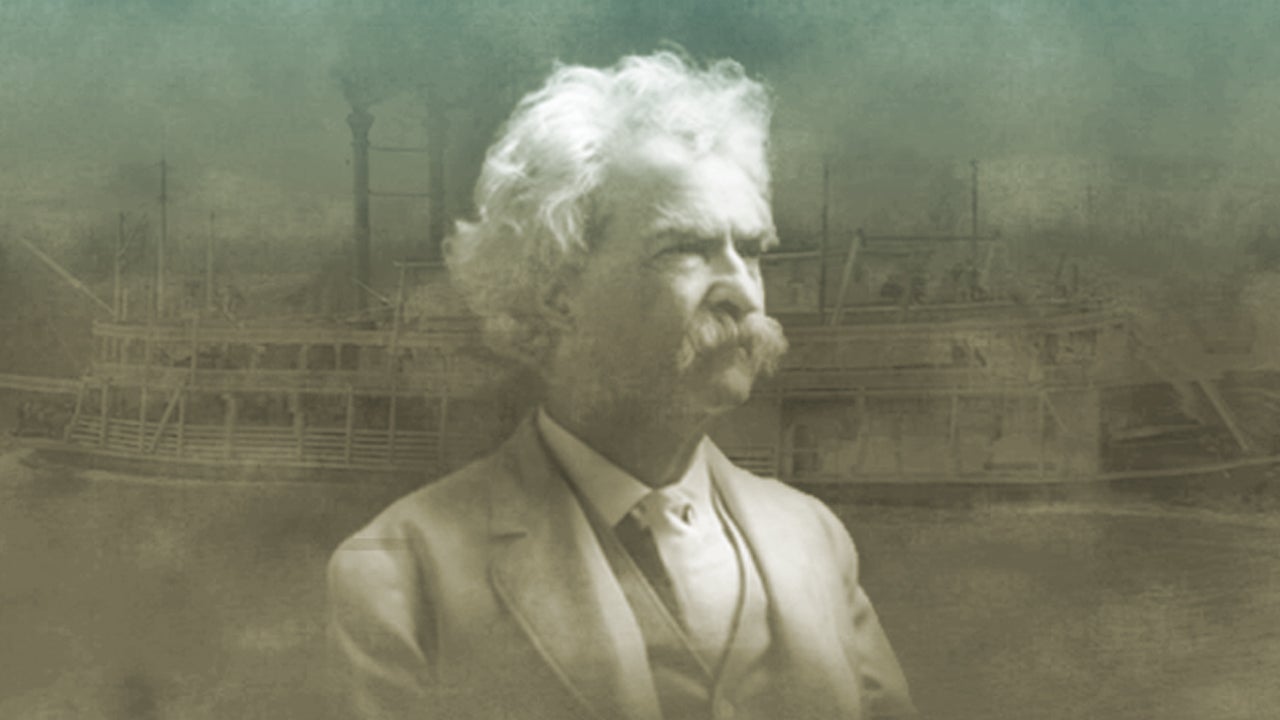
Literature
Mark Twain: Tom Sawyer, Huckleberry Finn, and Selected Short Stories
9 lessons
9.5h total length
Create Your Account to Get Instant Access to “Mark Twain: Tom Sawyer, Huckleberry Finn, and Selected Short Stories”
Explore the Wit and Wisdom of Mark Twain
Lessons in this course

27:49
lesson 1
The Study of Literature at Hillsdale College
The word literature has its origins in the ancient Latin word for letter. Letters allow human beings to exercise their gift of reason through reading and writing. The masters of literature, such as Mark Twain, are able to employ words to represent reality accurately. Through their writings, they reveal to the reader truth about human nature and the world in which we live.

36:34
lesson 2
Truth-Telling and Democracy: Mark Twain’s “The Story of the Bad Little Boy” and “The Celebrated Jumping Frog of Calaveras County”
Mark Twain, who employed both humor and satire in his writings, was a master of American realism. This artistic movement arose during the Civil War and sought to portray reality accurately and truthfully. Twain’s realism also had a democratic aim—it is anti-aristocratic, egalitarian, and supports natural rights.

30:04
lesson 3
“Not a Boy’s Book at All”: Tom Sawyer Part 1
Mark Twain’s commitment to realism is exemplified by his child heroes in Tom Sawyer and Huckleberry Finn. Twain takes their consciousness seriously, and he also uses the children to reflect satirically on adults. A major theme of Tom Sawyer—which is set on the edge of the Western frontier—is the tension between innocence and liberty on the one hand, and the necessity of civilization on the other.

29:57
lesson 4
“A Glittering Hero Once More”: Tom Sawyer Part 2
At the beginning of The Adventures of Tom Sawyer, Tom selfishly runs away, allowing everyone in town to think he has died. However, throughout the book, Tom faces various challenges and begins to grow in moral goodness and empathy. In the end, Tom returns to save an innocent man’s life and becomes a true hero.

27:15
lesson 5
“Mostly a True Book; With Some Stretchers”: Huckleberry Finn Part 1
Mark Twain’s The Adventures of Huckleberry Finn is set in a time period 40-50 years before the book was published in 1885. The narrator, Huckleberry Finn, is a poor southern boy who is pulled between different sets of influences, different systems of moral judgment, and different views of what justice is. The novel depicts the cultivation of a moral character in the midst of moral evils.

30:18
lesson 6
Shipwrecks, Pranks, and Feuds: Huckleberry Finn Part 2
As Huck Finn and the runaway slave Jim are on their journey down the Mississippi, they have a series of adventures. They encounter a wrecked steamboat—the Walter Scott, meet the feuding Shepherdsons and Grangerfords, and are tested in a dense fog. Jim becomes a father figure to Huck, whose moral education continues to progress.

28:32
lesson 7
“All Kings is Mostly Rapscallions”: Huckleberry Finn Part 3
As Huck and Jim continue their journey down the Mississippi, they meet two conmen pretending to be a duke and a king from Europe. The four of them travel together, witnessing a cross-section of American life, including a camp revival, a lynch mob, and a circus. During these adventures, Twain alludes to and develops themes from the Western literary canon, illustrating the Greco-Roman influence on the American heritage.

34:00
lesson 8
Huck’s Moral Crisis: Huckleberry Finn Part 4
Unlike the typical dramatic climax found in many works of great literature, the climax of Huckleberry Finn is a moral one. Huck must confront the question of Jim’s humanity. Is Jim merely property, as the laws of society dictate, or is he a human being equal to every other, as Huck’s experience with him on the Mississippi had shown?

28:42
lesson 9
“She’s Going to Adopt Me and Sivilize Me and I Can’t Stand It”: Huckleberry Finn Part 5
Huckleberry Finn ends with Huck leaving civilization and lighting out for the West. Of the ending, T.S. Eliot wrote, “I do not think that any book ever written ends more certainly with the right words.” Huck concludes the novel, saying, “But I reckon I got to light out for the Territory ahead of the rest, because Aunt Sally she’s going to adopt me and sivilize me and I can’t stand it. I been there before.”
Enroll in "Mark Twain: Tom Sawyer, Huckleberry Finn, and Selected Short Stories" by clicking the button below.
What Current Students Are Saying
I never really understood Huckleberry Finn or Tom Sawyer when I had to read it in school. This course gives me a totally different view of these stories. The real meaning of these stories is fascinating and surprising at the same time.
Create your FREE account today!
All you need to access our courses and start learning today is your email address.